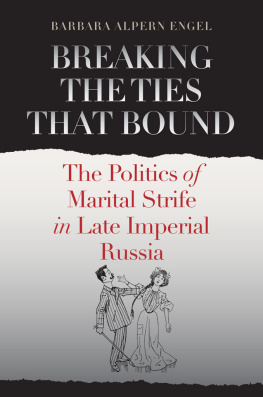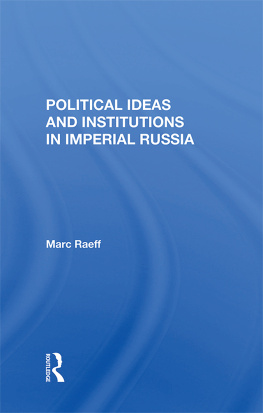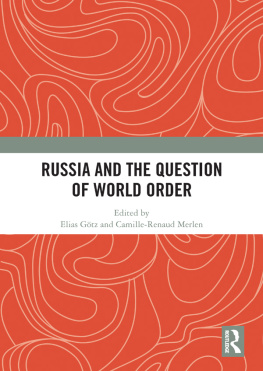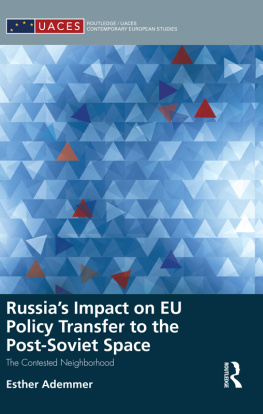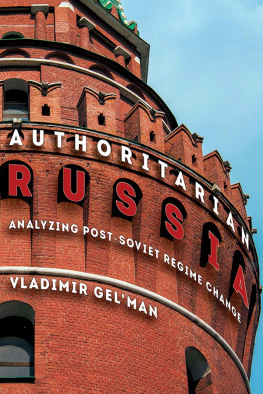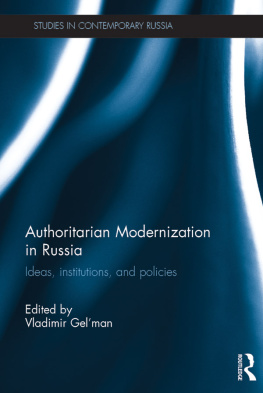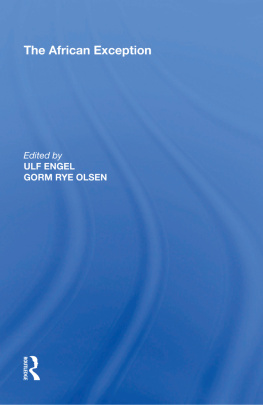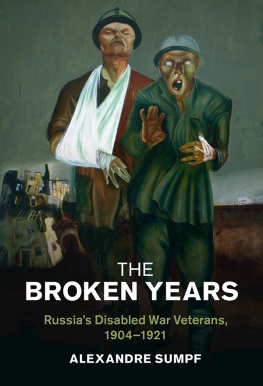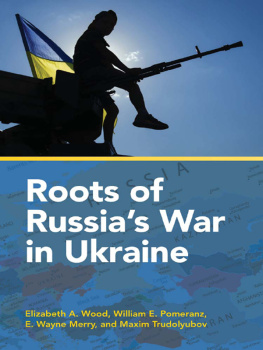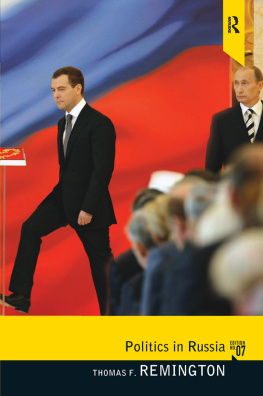Barbara Alpern Engel - Breaking the Ties That Bound: The Politics of Marital Strife in Late Imperial Russia
Here you can read online Barbara Alpern Engel - Breaking the Ties That Bound: The Politics of Marital Strife in Late Imperial Russia full text of the book (entire story) in english for free. Download pdf and epub, get meaning, cover and reviews about this ebook. year: 2011, publisher: Cornell University Press, genre: Politics. Description of the work, (preface) as well as reviews are available. Best literature library LitArk.com created for fans of good reading and offers a wide selection of genres:
Romance novel
Science fiction
Adventure
Detective
Science
History
Home and family
Prose
Art
Politics
Computer
Non-fiction
Religion
Business
Children
Humor
Choose a favorite category and find really read worthwhile books. Enjoy immersion in the world of imagination, feel the emotions of the characters or learn something new for yourself, make an fascinating discovery.
- Book:Breaking the Ties That Bound: The Politics of Marital Strife in Late Imperial Russia
- Author:
- Publisher:Cornell University Press
- Genre:
- Year:2011
- Rating:4 / 5
- Favourites:Add to favourites
- Your mark:
Breaking the Ties That Bound: The Politics of Marital Strife in Late Imperial Russia: summary, description and annotation
We offer to read an annotation, description, summary or preface (depends on what the author of the book "Breaking the Ties That Bound: The Politics of Marital Strife in Late Imperial Russia" wrote himself). If you haven't found the necessary information about the book — write in the comments, we will try to find it.
Russias Great Reforms of 1861 were sweeping social and legal changes that aimed to modernize the country. In the following decades, rapid industrialization and urbanization profoundly transformed Russias social, economic, and cultural landscape. Barbara Alpern Engel explores the personal, cultural, and political consequences of these dramatic changes, focusing on their impact on intimate life and expectations and the resulting challenges to the traditional, patriarchal family order, the cornerstone of Russias authoritarian political and religious regime. The widely perceived marriage crisis had far-reaching legal, institutional, and political ramifications. In Breaking the Ties That Bound, Engel draws on exceptionally rich archival documentationin particular, on petitions for marital separation and the materials generated by the ensuing investigationsto explore changing notions of marital relations, domesticity, childrearing, and intimate life among ordinary men and women in imperial Russia.
Engel illustrates with unparalleled vividness the human consequences of the marriage crisis. Her research reveals in myriad ways that the new and more individualistic values of the capitalist marketplace and commercial culture challenged traditional definitions of gender roles and encouraged the self-creation of new social identities. Engel captures the intimate experiences of women and men of the lower and middling classes in their own words, documenting instances not only of physical, mental, and emotional abuse but also of resistance and independence. These changes challenged Russias rigid political order, forcing a range of state agents, up to and including those who spoke directly in the name of the tsar, to rethink traditional understandings of gender norms and family law. This remarkable social history is thus also a contribution to our understanding of the deepening political crisis of autocracy.
Barbara Alpern Engel: author's other books
Who wrote Breaking the Ties That Bound: The Politics of Marital Strife in Late Imperial Russia? Find out the surname, the name of the author of the book and a list of all author's works by series.

